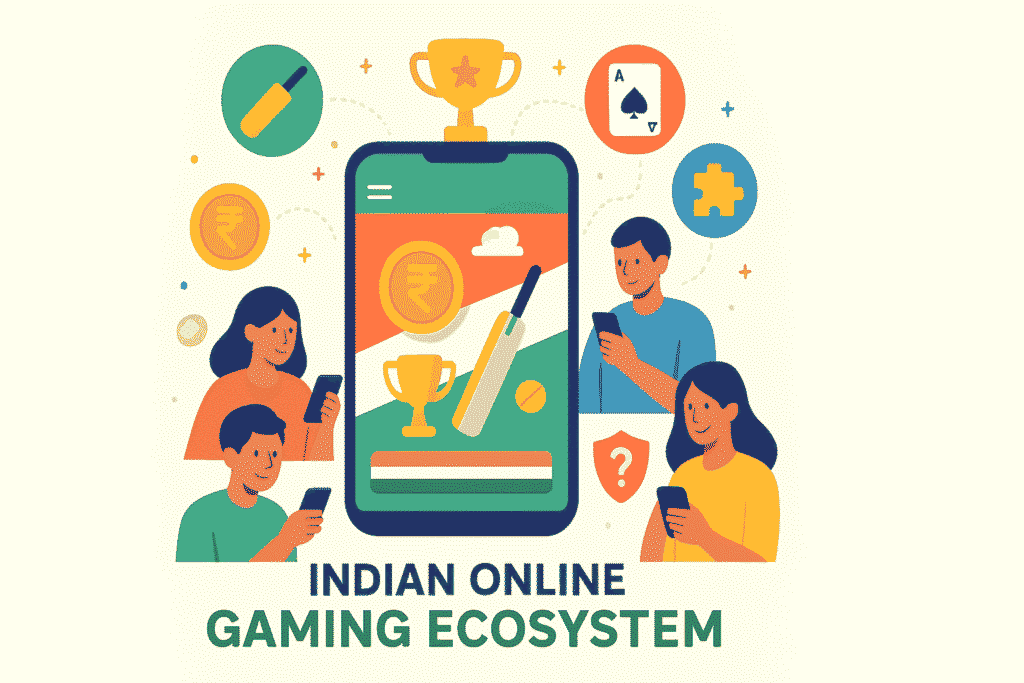The Indian online gaming platform landscape has evolved dramatically over the past few years, transforming from a niche entertainment sector into a booming industry worth billions of rupees. As we move through 2026, millions of Indian users are engaging with various gaming platforms daily, seeking entertainment, skill-based competitions, and in some cases, real-money rewards. However, this rapid growth has brought both exciting opportunities and significant concerns that every user should understand before participating.
This comprehensive overview examines the current state of the Indian online gaming platform ecosystem, exploring popular features, how these platforms operate, safety considerations, and essential recommendations for users navigating this dynamic digital landscape. Whether you’re a curious first-time user or an experienced gamer, understanding the industry’s realities helps you make informed decisions and protect yourself from potential risks.
Understanding the Indian Online Gaming Platform Ecosystem
What Defines Modern Gaming Platforms in India?
The Indian online gaming platform industry in 2026 encompasses various types of applications and websites, each offering different gaming experiences:
Skill-Based Gaming Platforms: These focus on games where player skill determines outcomes, including fantasy sports (cricket, football, basketball), card games like rummy and poker, and strategy-based competitions. These are generally considered more legitimate under Indian law when they emphasize skill over pure chance.
Casual Gaming Apps: Platforms offering puzzle games, arcade-style entertainment, and multiplayer competitions without real-money stakes. These remain the safest and most widely accepted category in the Indian market.
Real-Money Gaming Platforms: Apps that combine gaming with monetary transactions, where users deposit money to participate in contests with the potential to win cash prizes or valuable rewards. This category requires the most caution and regulatory awareness.
Hybrid Platforms: Many modern platforms combine multiple gaming types—fantasy sports, casual games, and sometimes luck-based elements—creating comprehensive entertainment ecosystems that appeal to diverse user preferences.
Market Growth and Popularity
The Indian online gaming platform sector has experienced explosive growth driven by several factors:
- Smartphone Penetration: Over 700 million smartphone users in India have made mobile gaming incredibly accessible
- Affordable Data Plans: Cheap internet connectivity enables seamless gaming experiences across economic classes
- Young Demographics: India’s predominantly young population shows strong interest in digital entertainment
- Payment Infrastructure: UPI and digital wallet adoption has simplified monetary transactions on gaming platforms
- COVID-19 Impact: Pandemic-driven lockdowns accelerated digital entertainment adoption, a trend that has sustained through 2026

Common Features Across Indian Online Gaming Platforms
Understanding typical features helps users identify what to expect and what might signal potential concerns.
Core Gaming Features
Mystery Box Systems: Many platforms incorporate virtual mystery boxes where users invest small amounts (typically starting at ₹20-₹100) to unlock boxes containing random rewards. These function similarly to digital loot boxes and are primarily luck-based, requiring careful consideration before participation.
Fantasy Sports Competitions: Cricket remains the dominant fantasy sport in India, followed by football and basketball. Users create virtual teams based on real players, earning points based on actual match performances. Success depends on sports knowledge and strategic team building.
Lucky Draw Games: Platforms often include games like lucky spins, color prediction, lottery-style games, and jackpot competitions. These are heavily chance-based and carry higher risks of financial loss.
Skill-Based Card Games: Rummy, poker, and similar card games where player decisions significantly impact outcomes. These are generally more legally protected than pure gambling games.
User Experience Elements
Accessible Interface: Most platforms prioritize user-friendly design with navigable dashboards, multi-language support (particularly English and Hindi), and real-time updates on contests, matches, and rewards.
Low Entry Barriers: Minimum deposits typically range from ₹20 to ₹100, making these platforms accessible to users across economic backgrounds. However, this accessibility can also encourage impulsive spending.
Social and Competitive Features: Community competitions, referral bonus programs, tournaments, and social media integrations (especially Telegram groups) create engagement and encourage user retention through social pressure and FOMO (fear of missing out).
Reward Systems: Daily login bonuses, promotional gift codes, achievement badges, and tiered membership levels gamify the experience and encourage consistent platform usage.
How Indian Online Gaming Platforms Typically Operate
Registration and Account Setup
Download Process: Users typically download apps from dedicated websites, the Google Play Store (for Android), or occasionally the Apple App Store (for iOS). Some platforms claim PC compatibility through web browsers or emulators.
Account Creation: Registration requires basic information like phone number, email address, and sometimes Aadhaar or PAN details for KYC (Know Your Customer) verification, particularly for platforms involving real-money transactions.
Profile Customization: Many platforms offer avatar customization, username selection, and profile personalization to create a sense of ownership and community belonging.
Gameplay Mechanics
Deposit Requirements: Participating in most contests requires deposits via credit/debit cards, UPI, digital wallets, or net banking. Platforms prominently display minimum deposit amounts to lower psychological barriers to entry.
Game Participation: Users select games or contests, pay entry fees when applicable, and participate according to specific game rules. Fantasy sports require team creation before match deadlines, while instant games like mystery boxes provide immediate results.
Outcome Determination: Results depend on various factors—real sports match outcomes for fantasy games, random number generation for luck-based games, or player decisions for skill-based games.
Rewards and Withdrawals
Winning Claims: Successful players accumulate winnings in their platform accounts, which may include cash, cryptocurrency-style tokens, or virtual items that can theoretically be converted to real value.
Withdrawal Process: Converting winnings to bank accounts typically requires completing KYC verification, meeting minimum withdrawal thresholds (often ₹200-₹500), and sometimes waiting 24-72 hours for processing.
Tax Implications: Users should understand that gaming winnings are taxable in India, with platforms sometimes deducting TDS (Tax Deducted at Source) automatically before processing withdrawals.
Critical Safety and Legitimacy Concerns
The Indian online gaming platform industry faces significant scrutiny regarding user safety and regulatory compliance.
Legal and Regulatory Questions
Ambiguous Legal Status: The distinction between “games of skill” (legal) and “games of chance” (restricted as gambling) remains legally complex. Different Indian states have varying regulations, creating confusion for users and platforms.
Licensing Verification: Many platforms lack transparent information about proper business registration, gaming licenses, or regulatory oversight, raising red flags about legitimacy and user protection.
Regulatory Gaps: The Indian gaming industry remains somewhat under-regulated compared to established markets, leaving users vulnerable to unscrupulous operators who may not honor withdrawal requests or protect user data.
Financial Risks
Addiction Potential: The combination of accessible pricing, reward psychology, and social pressure can lead to compulsive spending and gambling-like addiction behaviors, particularly in vulnerable users.
Misleading Promises: Platforms often highlight success stories and maximum possible winnings while downplaying the statistical reality that most users lose money, especially in luck-based games.
Withdrawal Issues: User complaints commonly cite difficulties withdrawing winnings, including arbitrary account suspensions, verification hurdles, processing delays, and unexplained withdrawal rejections.
Hidden Costs: Some platforms impose withdrawal fees, conversion charges, or require continued play to maintain withdrawal eligibility, effectively trapping user funds.
Data Privacy Concerns
Information Collection: Gaming platforms collect extensive personal and financial information during registration and KYC processes, creating privacy risks if data isn’t properly secured.
Third-Party Sharing: Terms of service often permit sharing user data with partners, advertisers, or affiliates, potentially exposing users to unwanted marketing or more serious security breaches.
Security Vulnerabilities: Not all platforms invest adequately in cybersecurity, leaving user data vulnerable to hacking, phishing attacks, or unauthorized access.
Essential Recommendations for Users
If you choose to engage with an Indian online gaming platform, these guidelines can help minimize risks:
Financial Protection Strategies
Set Strict Budget Limits: Establish firm daily or monthly spending caps (e.g., ₹500 daily maximum) and treat gaming as entertainment expense, not income opportunity. Never use money needed for essential expenses.
Start with Free Options: Many platforms offer free contests or demo modes. Test these extensively before risking real money to understand gameplay mechanics and platform reliability.
Avoid Chasing Losses: If you experience losses, resist the temptation to deposit more money trying to recover. This is classic gambling behavior that typically leads to deeper financial problems.
Track Spending: Maintain personal records of all deposits and withdrawals to accurately understand your net financial position on each platform.
Security Best Practices
Research Thoroughly: Before downloading any gaming app, research user reviews across multiple sources (not just the platform’s own testimonials), check for regulatory complaints, and verify business registration details.
Protect Personal Information: Share minimal necessary information during registration. Be extremely cautious about providing Aadhaar, PAN, or bank account details unless absolutely necessary and you’ve verified platform legitimacy.
Use Strong Security: Create unique, strong passwords for gaming accounts, enable two-factor authentication when available, and never share login credentials.
Beware of Scams: Be suspicious of platforms promising guaranteed wins, requiring upfront payments for withdrawals, or pressuring immediate deposits through time-limited offers.
Regulatory Awareness
Understand Local Laws: Gaming regulations vary by Indian state. Research your state’s specific laws regarding online gaming and real-money contests before participating.
Verify Licenses: Legitimate platforms should clearly display business registration details, gaming licenses, and regulatory compliance information. Absence of this transparency is a major warning sign.
Report Issues: If you encounter fraud, unfair practices, or withdrawal problems, report to appropriate authorities including state consumer protection agencies and cybercrime cells.
The Future of Indian Online Gaming Platforms
As we progress through 2026, the Indian online gaming platform industry faces important developments:
Regulatory Evolution: The Indian government is working toward comprehensive gaming regulations that will provide clearer legal frameworks, potentially improving user protection while defining acceptable platforms and practices.
Industry Consolidation: Expect established, compliant platforms to thrive while questionable operators face increased scrutiny and potential shutdown, gradually improving overall industry credibility.
Technology Integration: Advanced features like blockchain transparency, AI-powered fair play monitoring, and enhanced security protocols may become standard, addressing current trust concerns.
Mainstream Acceptance: As regulations clarify and legitimate platforms establish credibility, online gaming will likely gain broader social acceptance beyond current stigma associated with gambling.
FAQs:
Q1: Are Indian online gaming platforms legal in 2026?
Legality varies by game type and state. Skill-based games like fantasy sports and rummy are generally legal nationwide, while games of chance face restrictions. Different Indian states have different regulations, so check your local laws before participating.
Q2: How can I verify if an Indian online gaming platform is safe?
Check for transparent business registration details, gaming licenses, clear terms of service, positive independent user reviews, responsive customer support, and secure payment processing. Avoid platforms lacking this transparency or making unrealistic earning promises.
Q3: Can I really earn money on Indian online gaming platforms?
While some users win money, most participants lose, especially in luck-based games. Treat gaming as entertainment, not income. Skilled players in fantasy sports or card games may profit, but success requires expertise, not just luck or minimal investment.
Q4: What are the risks of using Indian online gaming platforms?
Key risks include financial loss through addictive gameplay, data privacy breaches, withdrawal difficulties, legal complications in certain states, exposure to scams, and tax implications on winnings. Always research thoroughly and set strict spending limits before participating.
Q5: How do I withdraw money from an Indian online gaming platform?
Typically, complete KYC verification with ID documents, ensure minimum withdrawal threshold is met, request withdrawal through the app’s banking section, and wait for processing (usually 24-72 hours). Be aware that platforms may charge fees and deduct applicable TDS before payment.

